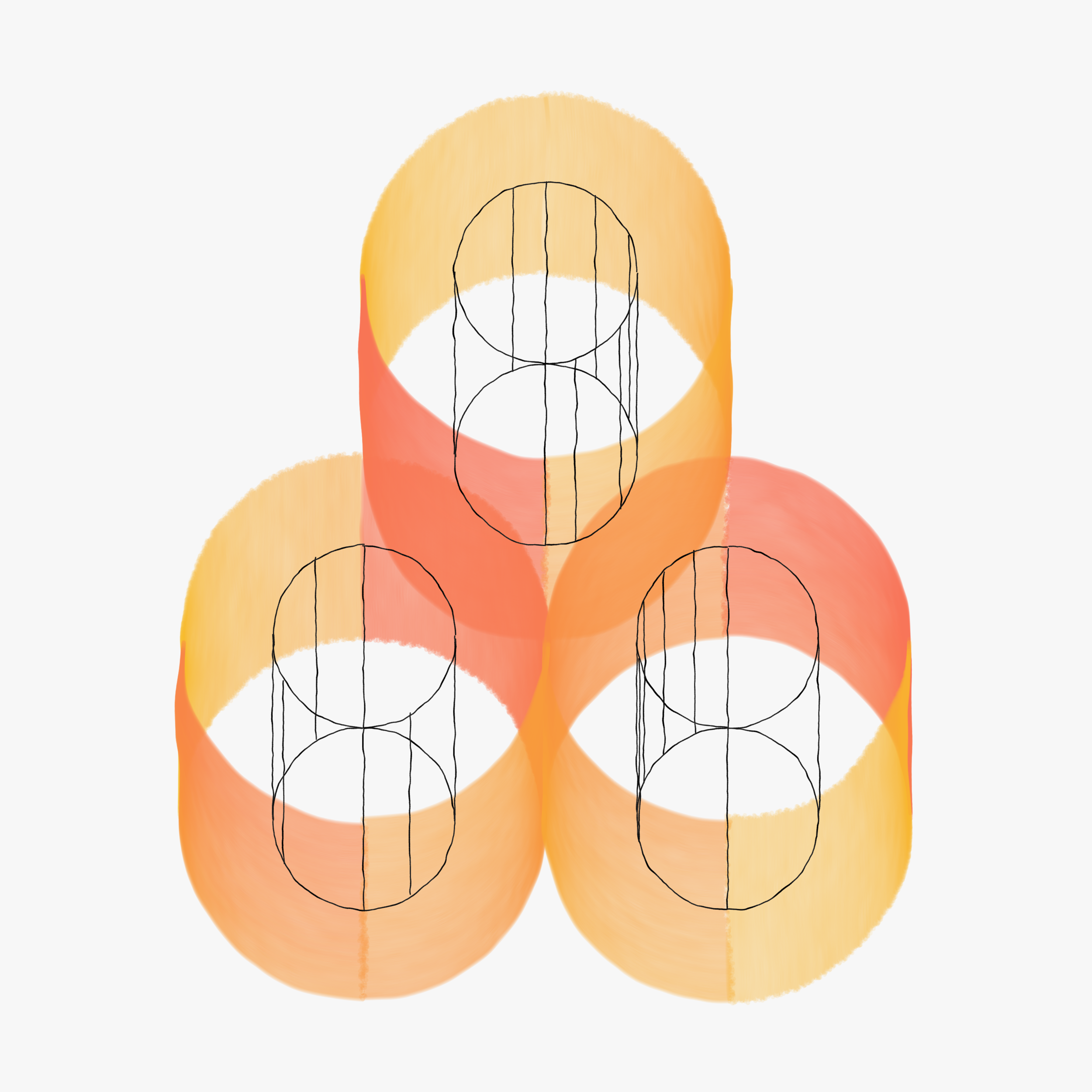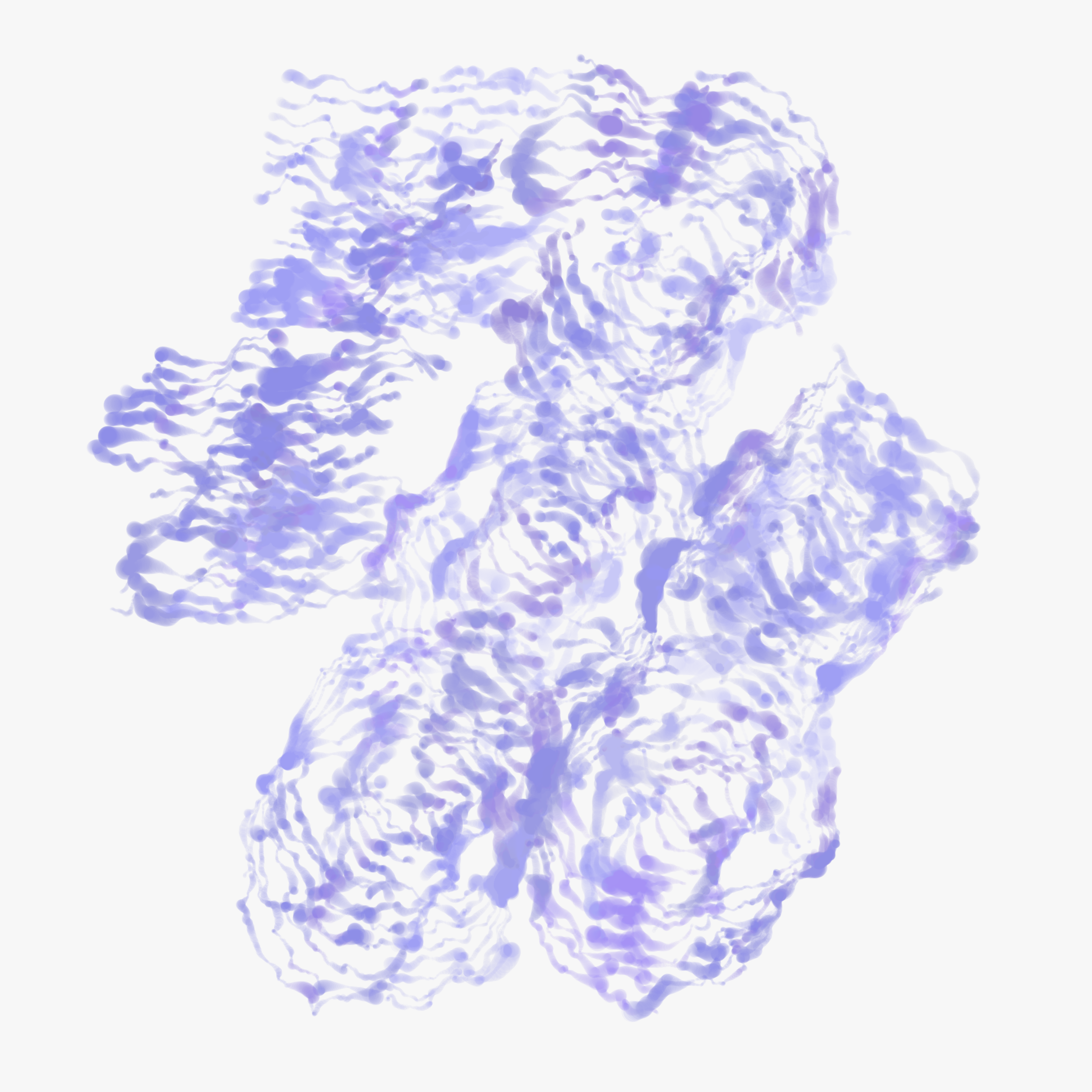Intro Elements Composition Stroke Color Test Mints Prints
FREEHAND: Stroke
The extruded shapes are rendered in three possible stroke types — pen, flat brush, or round brush. Each stroke type is based on a real analogue medium and is drawn with a degree of texture and variation that evokes a hand-drawn pen or brush stroke. The strokes are generated using 2D noise functions that displace points along a line to create a more natural looking curve .
Pen
The pen stroke consists of a series of continuous line segments, the stroke width of each is based on the magnitude of the noise function at the start point of the segment. This results in a varied stroke — as if drawn with a pen, by a hand that is applying variable pressure.
Flat Brush
Each flat brush stroke is made up of a series of curves. The stroke weight of each curve is relatively thick — so at any point within the flat brush stroke, several low-opacity curves are overlapping to create the final color of the stroke. This provides an overall softness while maintaining a level of texture within the the stroke.
Each curve is extended by a random amount on both ends, adding additional texture and evoking the bristles of a flat brush.
Round Brush
The round brush stroke consists of circles placed along a curve, the points of which have been displaced based on a 2D noise function. The radius of each circle is based on the magnitude of the noise function at the center of the circle. This results in a varied stroke — as if paint was applied by hand with variable pressure.
Stroke Direction
Wireframe
With pen and round brush stroke types, the density of the strokes varies. In some outputs, the pen is drawn as a wireframe — with either very sparse lines or only with lines that trace the outline of the shape.
Stroke Mix Type
If an output consists of two stroke types, there are three possible ways that the stroke types can be assigned - by shape, by direction, or by offset. If an output consists of all three stroke types, the stroke types can only be assigned by shape.
Stroke Mixed by Shape
Each shape is randomly assigned a stroke type. This is possible in outputs with two or three stroke types.
Stroke Mixed by Direction
One stroke type is assigned to the vertical strokes and the other is assigned to horizontal strokes. This is only possible in outputs with two stroke types.
Stroke Mixed by Offset
One stroke type is assigned to the inner shape and the other is assigned to the outer shape. This is only possible in outputs with two stroke types where the shapes are offset.
Wobble
The analogue texture of the strokes is generated with 2D noise functions that displace points along the stroke. The amount of displacement is determined by the wobble type of the line — which can be either steady, wobbly, or expressive.
Wobble Mixed by Shape
Each shape is randomly assigned a wobble type. This is possible in outputs with two or three stroke types.
Wobble Mixed by Stroke Type
One wobble type is assigned to the the first stroke type and the other is assigned to second stroke type. This is only possible in outputs with two stroke types.
Wobble Mix Type
If an output consists of two wobble types, there are two possible ways that the stroke types can be assigned - by shape and by stroke type. If an output consists of all three wobble types, the stroke types can only be assigned by shape.































